Kicking-Off the NEWAVE Paradigms Working Group in Delmenhorst, Germany
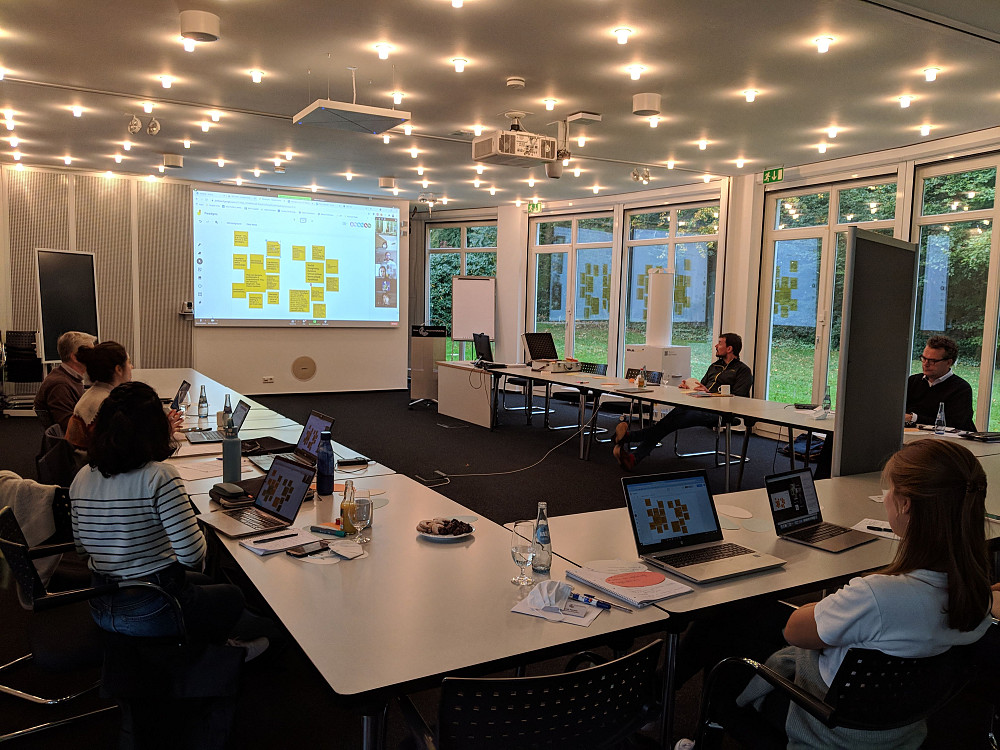
The research component of the NEWAVE Innovative Training Network follows the Problématiques-Paradigms-Patterns (3Ps) heuristic framework, which is built around 3 overarching and interrelated research questions (RQ) addressing the fundamental dimensions of water governance. These dimensions are related to the dialectical socio-environmental relationship between Problématiques, Paradigms, and Patterns of governance. The NEWAVE Early Stage Researchers gather in three working groups for each one of the ‘3Ps’, together with their supervisors and co-supervisor, to move forward the common research agenda of the network.
The Paradigms Working Group was the first one to meet in person, last October 2021. Nina Valin tells us their experience and first steps setting the group’s research agenda in her blog post for NEWAVE.
The members of the newly formed NEWAVE Paradigms working group arrived in a scattered way in Delmenhorst, Germany, as they each made their way from a different city or country. As they entered one by one through the door of the bright and spacious venue at HWK, Institute for Advanced Study, the once only virtually familiar faces became 3D and personal, which marked a symbolic turn in the activities of the NEWAVE 3Ps’ working groups (Problématiques; Paradigms; Patterns) – our collaboration, for a great part put on hold during the Covid pandemic, could finally take off.
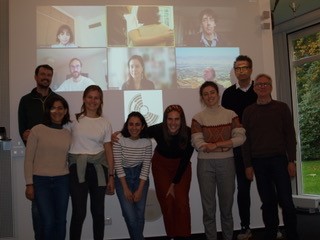
This did not come without challenges, as the nature of this first Paradigms meeting was hybrid, with almost half of the participants attending online. The group is composed by a number of NEWAVE Early Stage Researchers (ESRs), Radhika Singh, Javier Rodríguez Ros, Alejandra Burchard Levine, Shahana Bilalova, Dona Geagea, Hannah Porada, Nina Valin, and their supervisors, Nicolas Jager, Jens Newig, Andrea Gerlak, Dave Huitema, Jeroen Vos, Maria Kaika, François Molle.
This 2-days workshop aimed to frame a common understanding of water governance paradigms and to define our direction as a group: Why is it important to study paradigms? What is this collaborative work meant for? How are we going to undertake it?
To answer these questions, the discussion revolved around 4 main topics:
Collecting different perspectives and definitions of paradigms
Paradigms can be seen as sources of the system, or shared ideas of how a system functions and what its goals are. In addition, a paradigm is also a way of moving forward and changing what is already there: in that sense, this concept inherently accounts for change, and it also bears a directionality/an intention. It can have a circular way of moving, as a paradigm in some cases recycles old ideas and transforms them. The notion of power is also important to consider when talking about paradigms, since some paradigms are considered to be hegemonic compared to others – they continue exercising power until a rupture occurs and leads to another system (paradigm shift or incrementalism). Finally, the intentionality of paradigms needs to be discussed, as they are not always consciously brought to the table – they can also be embedded in how people think and act, sometimes up to the point of being normalized and unquestioned. A useful metaphor is to reflect on how ‘’the fish don’t see the water’’.
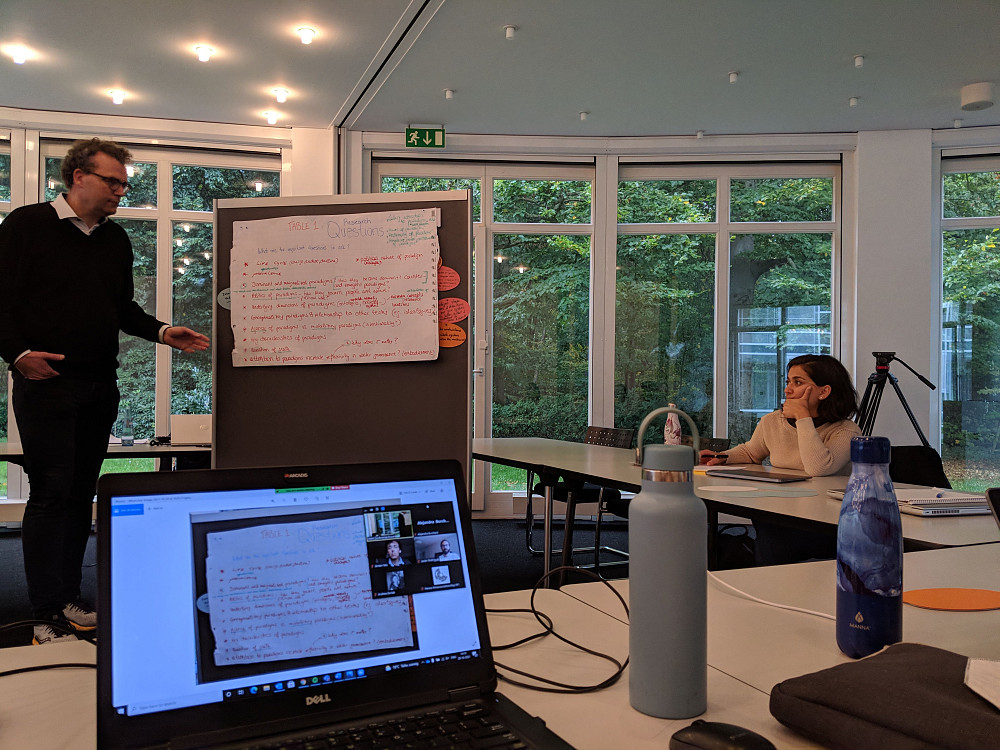
Exchanging on the expectations, focus and goals of the working group
The Virtual Labs (VLs) were defined as the space to work on the NEWAVE project’s deliverables on a monthly basis in 2021 and 2022. The way we hope to work as a group is ideally through a co-creative process, which would also involve non-academic partners – policy makers, practitioners and pre-established NEWAVE partners. Here, the VLs could be a way to collect the perspectives of other partners to get inputs for the policy paper or the agenda setting paper.
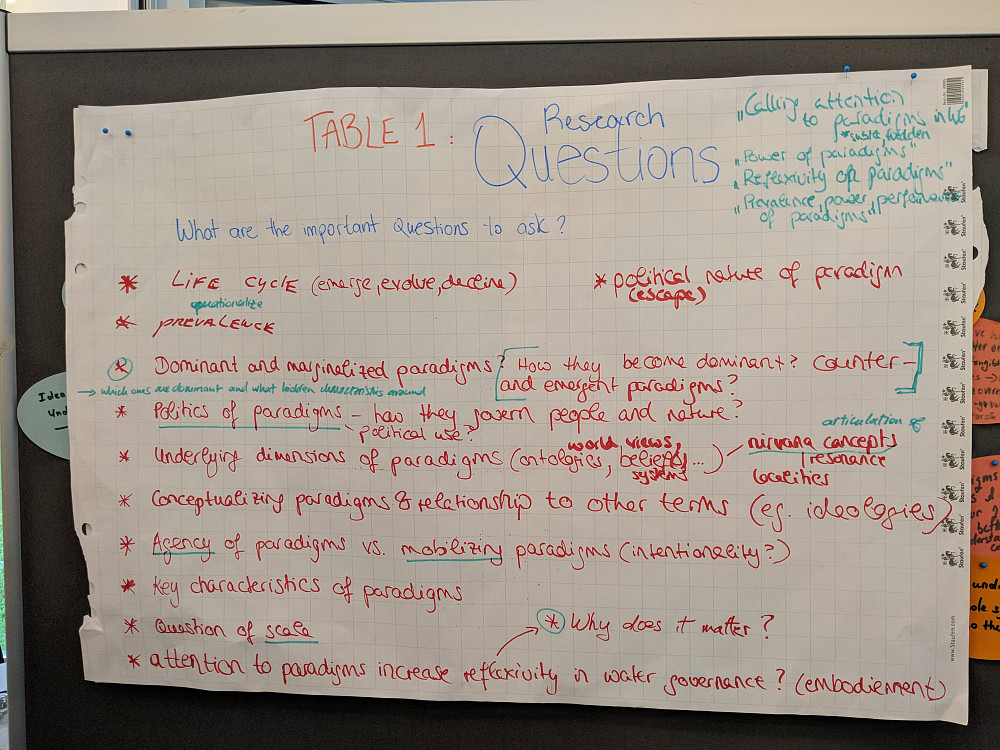
Identifying a first set of research questions
Some of the key questions that emerged considered the following:
- How can attention around paradigms enhance the reflexivity in the water governance debate?
- What do the different models and concepts in water governance literature reveal about beliefs and unconscious beliefs?
- How do paradigms become dominant, and how do counter-paradigms emerge?
Discussing the envisioned deliverables and work plan
As a first activity for the group, it was decided to start working on an agenda setting paper as part of a special issue, which would convey the significance of paradigms and the importance of studying them to the wider water governance community .
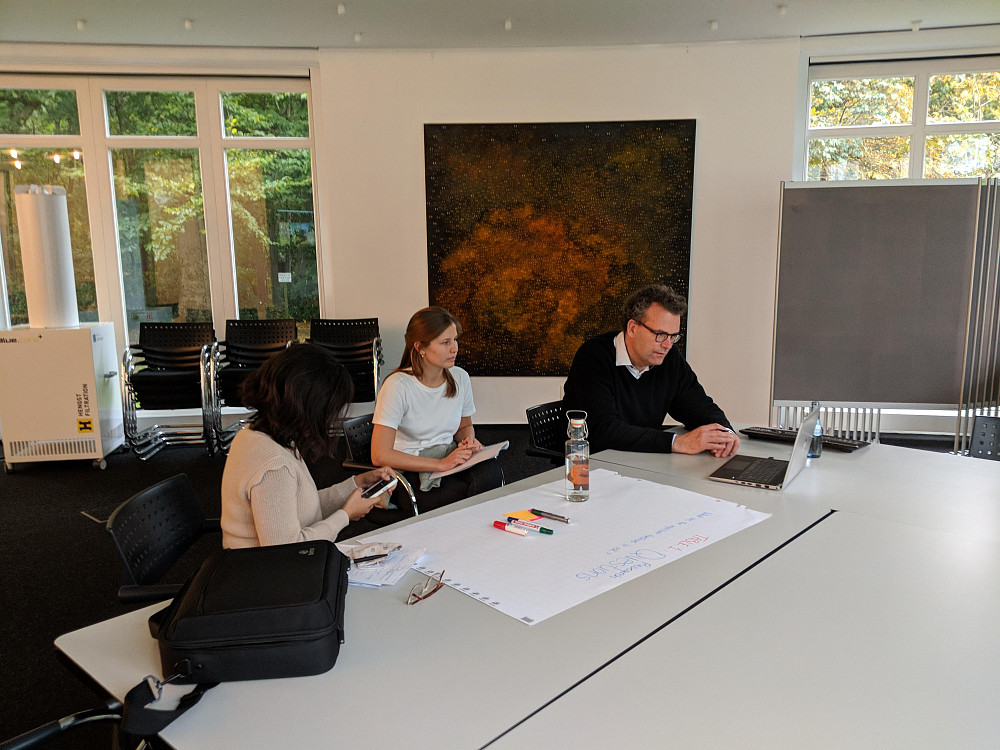
Finally, this meeting was also the occasion to co-design how to create an enjoyable work environment for ourselves as a group, ensuring we do not lose sight of making it a fun process while carrying the workload forward, a safe space for different voices to arise (acknowledging and celebrating the plurality of the group), and committing to principles of honesty and transparency in our work ethic. We have designed in-person meetings as a reward to motivate us during the virtual meeting process (as we recognize that the most creative or inspiring conversations often happen at the coffee breaks!). When together, we will make sure to take time to reflect collectively and individually, and most importantly to celebrate being able to gather in person!
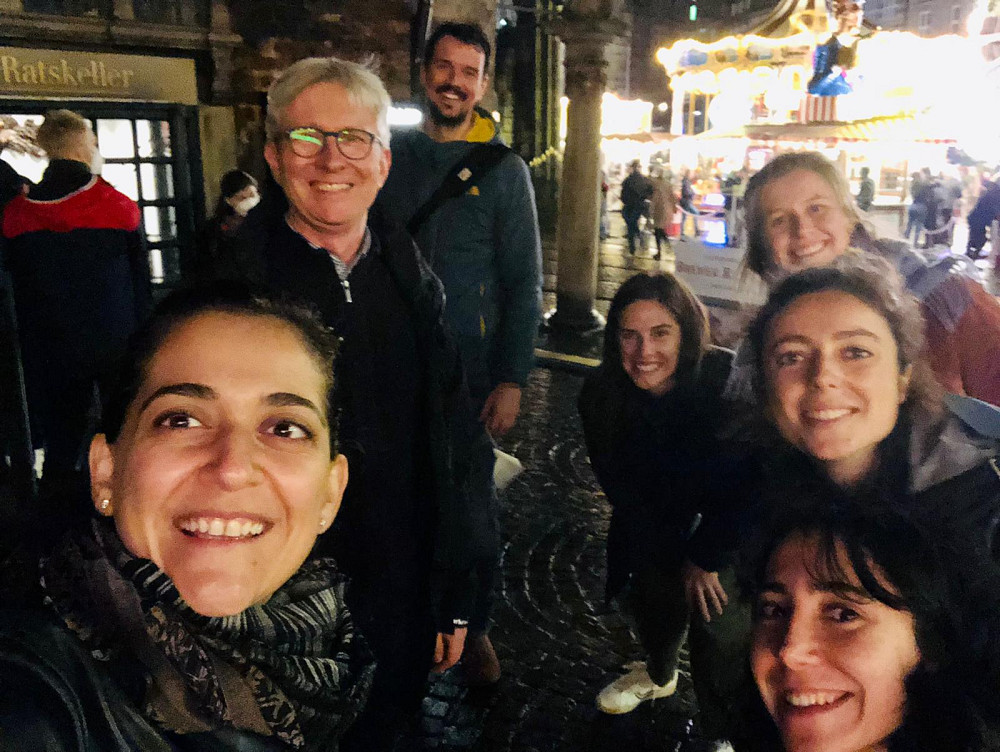
Want to know more?
For updates on NEWAVE’s activities, events and opportunities subscribe to our newsletter.




